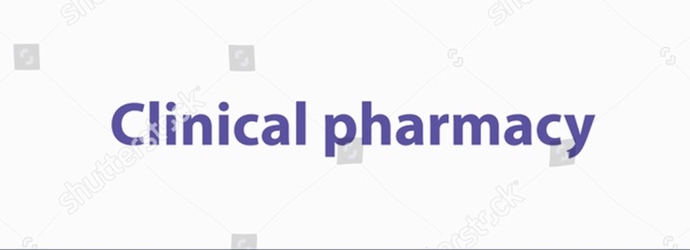
A Clinical Pharmacy Group typically refers to a team or community of healthcare professionals, mainly pharmacists, who specialize in the practice of clinical pharmacy. Clinical pharmacy focuses on optimizing medication therapy to improve patient outcomes. These groups often work in hospitals, clinics, or academic settings, and may also collaborate in research or professional organizations.
Medication Therapy Management (MTM):
- Assessing and optimizing medication use for individual patients.
- Monitoring for drug interactions, side effects, and efficacy.
- Educating patients on proper medication usage.
Collaborative Care:
- Working alongside physicians, nurses, and other healthcare providers to develop and implement therapeutic plans.
- Providing drug information and guidance on complex medication regimens.
Patient Care Services:
- Direct patient consultations for chronic disease management (e.g., diabetes, hypertension).
- Managing medication for specialized conditions like cancer, transplant, or infectious diseases.
Clinical Research and Education:
- Participating in clinical trials or studies to evaluate new drugs or treatment approaches.
- Teaching pharmacy students, residents, and healthcare professionals.
Policy Development:
- Contributing to hospital or institutional policies regarding medication use.
- Ensuring compliance with guidelines, safety protocols, and regulatory standards.
Specialized Roles:
- Focus areas like oncology, cardiology, pediatrics, geriatrics, or infectious diseases.
The clinical pharmacy perspective is centered around the role of pharmacists as integral members of the healthcare team, emphasizing patient-centered care, medication optimization, and collaborative practice. It goes beyond dispensing medications to actively participating in the therapeutic decision-making process to ensure safe, effective, and cost-efficient medication use.
Core Components of the Clinical Pharmacy Perspective:
1. Patient-Centered Care
Focus on Outcomes: Clinical pharmacists aim to improve patient health outcomes by optimizing medication therapy based on individual needs.
Education and Empowerment: Educating patients about their medications, fostering adherence, and involving them in decision-making.
2. Medication Therapy Management (MTM)
Evaluating the appropriateness of prescriptions.
Monitoring efficacy and safety of medications.
Adjusting dosages and therapy in collaboration with physicians based on patient-specific factors (e.g., age, renal function, comorbidities).
3. Interdisciplinary Collaboration
Working alongside physicians, nurses, dietitians, and other healthcare professionals.
Acting as the medication expert within the healthcare team to provide evidence-based recommendations.
4. Preventive Care
Promoting immunizations, screenings, and lifestyle modifications to reduce disease burden.
Identifying at-risk populations and recommending preventive measures.
5. Drug Safety and Pharmacovigilance
Monitoring for adverse drug reactions (ADRs) and reporting them to relevant authorities.
Ensuring safe use of high-risk medications and reducing medication errors.
6. Individualized Treatment Plans
Using patient data (e.g., genetic, laboratory, and clinical information) to tailor therapies.
Adjusting treatment strategies in special populations such as pediatric, geriatric, or pregnant patients.
7. Health System and Policy Contributions
Developing institutional protocols and guidelines for medication use.
Advocating for rational drug use and promoting cost-effectiveness.
8. Chronic Disease Management
Specialized care for chronic conditions such as diabetes, hypertension, asthma, and cardiovascular diseases.
Routine follow-ups to monitor progress and adjust medications as needed.
9. Research and Evidence-Based Practice
Staying up-to-date with clinical guidelines and emerging therapies.
Conducting research to evaluate the effectiveness of interventions and improve clinical practices.
10. Professional Advocacy
Raising awareness about the role of clinical pharmacy in improving healthcare outcomes.
Encouraging integration of clinical pharmacy services into healthcare systems globally.
In essence, the clinical pharmacy perspective prioritizes the safe, effective, and rational use of medicines, with a focus on enhancing patient outcomes and quality of life. It bridges the gap between medicine and patient care by ensuring that therapeutic interventions are evidence-based and tailored to each individual.
- Phone : +982166954709

